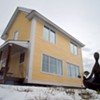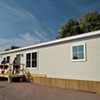Published January 7, 2015 at 10:00 a.m. | Updated October 8, 2020 at 5:01 p.m.
More By This Author
Speaking of...
-

Vermont Senate Advances Bill to Make Big Oil Pay for Climate Crisis
Apr 2, 2024 -

Court Upholds Vermont Gas' Purchase of Methane From a New York Landfill
Jan 12, 2024 -

Vermont Environmentalists Push for More Aggressive Clean-Energy Goals
Nov 28, 2023 -

Stamford Wind Proposal Tests Whether Large Turbines Have a Future in Vermont
Nov 22, 2023 -

Key Vote on Burlington District Energy Project Looms on Monday
Nov 17, 2023 - More »
Comments
Comments are closed.
From 2014-2020, Seven Days allowed readers to comment on all stories posted on our website. While we've appreciated the suggestions and insights, right now Seven Days is prioritizing our core mission — producing high-quality, responsible local journalism — over moderating online debates between readers.
To criticize, correct or praise our reporting, please send us a letter to the editor or send us a tip. We’ll check it out and report the results.
Online comments may return when we have better tech tools for managing them. Thanks for reading.

















































